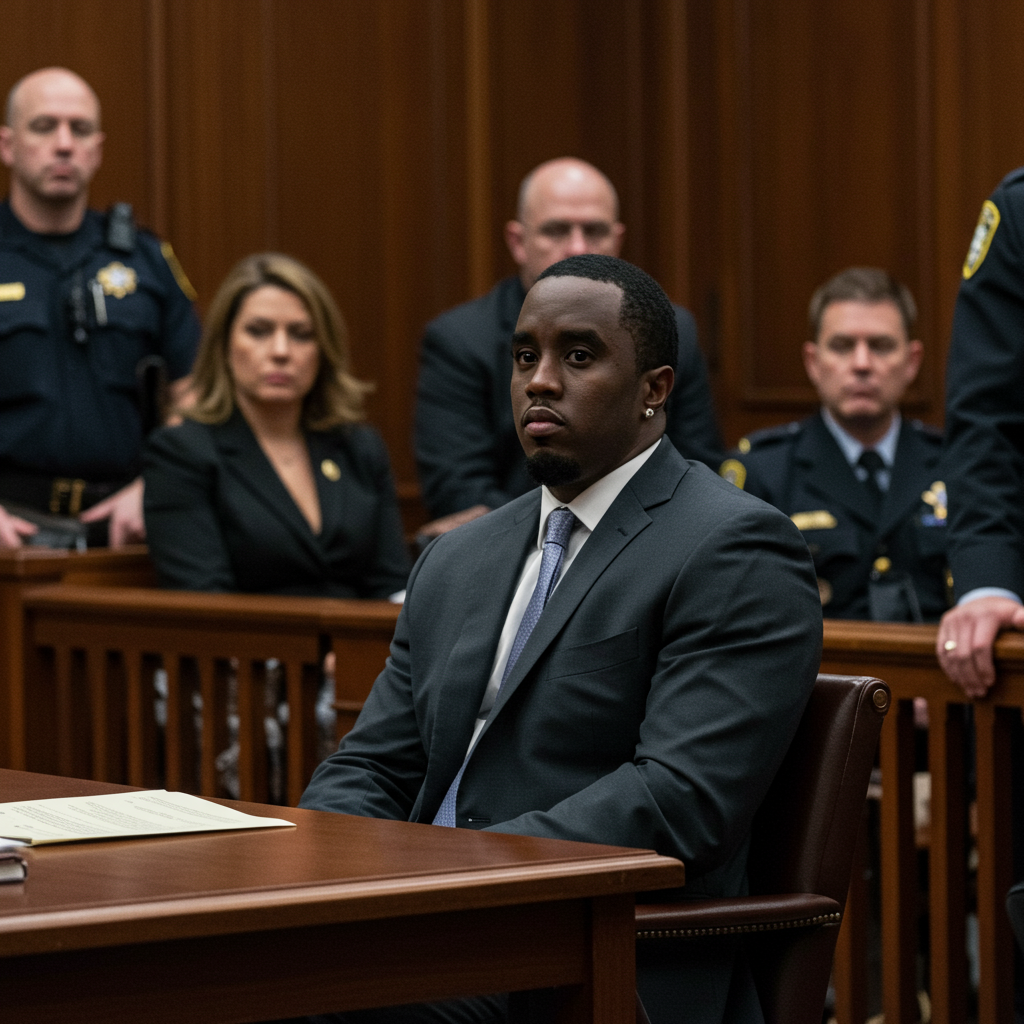Prosecutors Present Final Arguments in Sean ‘Diddy’ Combs Trial, Focus on Cover-Up
After nearly seven weeks of witness testimony, prosecutors in the federal sex trafficking and racketeering trial of Sean “Diddy” Combs delivered their closing arguments in a Manhattan courtroom. The government’s central contention is that the music mogul led a sophisticated “criminal enterprise,” using his vast wealth, influence, and trusted inner circle to facilitate alleged crimes and conceal them from authorities.
Assistant U.S. Attorney Christy Slavik painted a picture of Combs’ business empire as a “kingdom” where employees and associates were expected to serve his every demand, often facilitating illegal activities. According to the prosecution, Combs believed his “fame, wealth, and power put him above the law” and “doesn’t take no for an answer,” relying on silence, shame, and fear to control those around him and cover up his actions.
Combs faces serious federal charges, including sex trafficking by force, fraud, or coercion, transportation to engage in prostitution, and racketeering conspiracy. He has pleaded not guilty to all counts.
Witness Testimony Highlights Alleged Coercion and Abuse
A significant portion of the prosecution’s closing argument focused on the testimony of two former girlfriends, singer Casandra “Cassie” Ventura Fine and a woman identified only as “Jane.” Both women testified to allegedly being repeatedly coerced into engaging in sexual acts with male escorts, often during multi-day, drug-fueled events prosecutors referred to as “freak offs” or “hotel nights.”
Prosecutors argued that Combs employed various tactics to compel participation, including “love-bombing,” manipulation, financial leverage (like paying a victim’s rent), threats (such as leaking sex tapes), and even physical violence. The prosecution highlighted alleged incidents of violence years apart, drawing comparisons between a 2016 alleged assault on Cassie Ventura at an InterContinental Hotel, which was captured on surveillance video, and an alleged June 2024 incident involving “Jane,” suggesting a pattern of behavior. Evidence, including alleged frantic text messages from “Jane” to Combs’ staff, was presented to illustrate the pressure and fear she allegedly experienced.
According to the prosecution, Combs would often watch or film these encounters, and drugs were an “essential ingredient,” allegedly used to keep victims “awake and compliant.” Prosecutors explicitly stated they were not attempting to criminalize dysfunctional relationships or unconventional sexual preferences, but rather the alleged use of illegal actions like force, threats, fraud, or coercion to compel participation in commercial sex acts. They argued that convincing the jury of just one such instance for either Cassie Ventura or “Jane” was sufficient for a sex trafficking conviction.
Racketeering Conspiracy and Predicate Acts
The racketeering conspiracy charge alleges that Combs used his enterprise to engage in a pattern of criminal activity. Prosecutors contended that Combs’ inner circle, including staff like his chief of staff, acted as “foot soldiers” and security as “lieutenants,” using company resources and payroll to facilitate crimes and cover them up. Examples presented as alleged predicate acts supporting the conspiracy included:
Bribery: Allegedly paying off hotel security guards to conceal the 2016 footage of the assault on Cassie Ventura.
Drug Distribution: Accusations that Combs and staff bought and distributed drugs, providing them to Ventura and “Jane” for use during alleged “freak offs.”
Kidnapping: Including alleged instances where Combs prevented Cassie Ventura from leaving a hotel room after an injury and an alleged incident where a former assistant, Capricorn Clark, was subjected to forced lie detector tests regarding missing jewelry.
Arson: An allegation that Combs was responsible for the 2012 firebombing of rapper Kid Cudi’s car, purportedly motivated by jealousy over Kid Cudi dating Cassie Ventura.
While some specific attempted charges related to kidnapping and arson were streamlined for jury instructions, prosecutors argued that evidence of these acts demonstrated the criminal nature of the alleged enterprise.
Defense Rests Quickly, Jury Deliberation Approaches
Combs, who has remained in federal custody since his September 2024 arrest, did not testify in his own defense. His legal team rested their case in under 30 minutes without calling any witnesses, a strategy legal experts noted is common when the defense believes the prosecution has failed to meet the high burden of proof beyond a reasonable doubt.
The defense is scheduled to present their closing arguments next. They have previously indicated they plan to argue that relationships and sexual encounters were consensual, describing Combs’ lifestyle as unconventional but not criminal, and potentially arguing that employees were unaware of alleged illicit activities.
The 12-member jury faces the complex task of reaching a unanimous verdict on the charges, weighing the prosecution’s extensive evidence of alleged abuse and coercion against the defense’s arguments regarding consent and the lack of a criminal conspiracy. If convicted on all counts, Combs faces a minimum sentence of 15 years and potentially life in prison.


